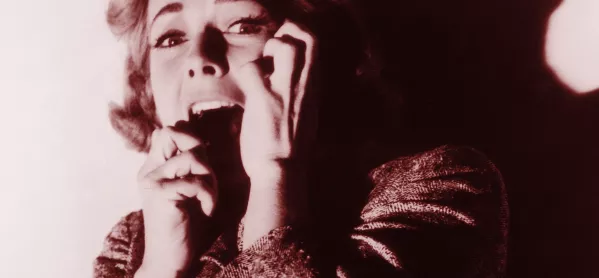- Home
- ‘Teacher training was full of gimmicks 10 years ago’
‘Teacher training was full of gimmicks 10 years ago’

I trained to be teacher in 2006-07. Like any trainee, I desperately wanted to learn how to be a great teacher: I wanted to know what worked.
However, beyond some theory (Vgotsky, Piaget, Skinner), my abiding memory of that year is a series of university days dedicated to demonstrating activities we could use in our own classrooms to engage students. Fun was an end in itself.
The message was clear: outstanding lessons were showy, whizzy, fun; inadequate lesson were still, passive, boring. We were encouraged to be the guide on the side, to allow students to discover for themselves and to ensure they were enjoying their learning. I came out of that year a fully trained facilitator.
Reflecting on my PGCE, some key principles emerge in what I was taught about being a great teacher.
Hooks
How could we hook our students into their learning from the moment they entered the classroom? If students were like aimless fish in a pond, our job was to whip them out of the waters of tedium and into the dazzling world of exciting learning. They should be immersed and engaged from the get-go.
Reading a poem about a hippy? Get some incense burning and play some Bob Dylan.
Reading the final lines of Romeo and Juliet? Whip out some candles and turn off the lights.
Studying a detective novel? Mock up a crime scene and have students follow the clues.
Imagine how exciting, exhausting and unsettling this unpredictability and over-stimulation must have been for students, and to what end? Did they remember what I taught them that lesson or that I got wax on the carpet and set off the fire alarm?
Relevance
How could we make learning as relevant as possible to our students? Our job was not to expand their horizons so much as to make the horizon seem as close as possible through some relevancy telescope.
In practice, this meant selecting texts which would be the most relatable or interesting to students. Think Holes or Stone Cold or Skellig. There will always be those that defend these books but surely the reason for including them on the curriculum should not be “kids like ‘em”?
However, some very not relevant texts still had to be taught, so how do you make Shakespeare or Hardy or Blake relevant to 14-year-olds? The answer: EastEnders, Room 101 or Big Brother. Somehow turning a scene from Much Ado into an EastEnders episode was considered a valuable learning exercise. I can’t even remember the arguments for it because we were too busy having fun “duff, duff duffing” after Hero was accused of being “an approved wanton”.
Discrete Skills
Skills were seen as being discrete from knowledge. We were told that you could make students better thinkers by giving them time in lessons to develop their “thinking skills”.
You might, for example, start a lesson with a question: what colour is Tuesday? Of course, there’s no right answer and it has sod all to do with whatever you were doing the rest of the lesson but it was seen as good practice because we all want students to be better thinkers, right?
It didn’t seem to matter that to think deeply or creatively about something you need an awful lot of knowledge.
Don’t tell students things
The anti-instruction agenda was in full flow when I trained. Heaven forbid you should spend more than a few minutes telling or explaining anything. Far better to allow students to come to understanding with minimal guidance from you. In fact, whole lessons in which the teacher didn’t talk at all were lauded.
Our job was to contrive ways to give students knowledge that didn’t involve telling them. Information hunts, treasure hunts, booking out the computer rooms were all ways of getting around too much teacher talk.
Small wonder we have people asking why we need teachers when we’ve got Google - where was the training about how to explain a complex concept well?
If all else fails? Arts and crafts
Not sure how to make your lesson fun or engaging? Make a poster, build a sculpture or design a puppet.
Whilst I may roll my eyes now, what I learned on my PGCE had long-reachingng effects. Some of these things were, at best, a waste of time; at worst, detrimental to the learning of my students.
I’d like to think that the training our teachers receive today is much better and includes furnishing them with a good understanding of how we learn best and how to explain well. But I worry.
I worry because what our trainee teachers learn in their first year can be seen as gospel and if they’re still being trained to teach in the way I was, that’s a concern. I also worry because a lot of nonsense ideas are very sticky: there are still training courses peddling VAK or showing new teachers how to use playing cards to improve students’ literary analysis.
Let’s leave the gimmicks where they belong: a decade or more in the past.
Rebecca Foster is head of English and Associate Senior Leader at Wyvern St Edmund’s Learning Campus.
Keep reading for just £1 per month
You've reached your limit of free articles this month. Subscribe for £1 per month for three months and get:
- Unlimited access to all Tes magazine content
- Exclusive subscriber-only stories
- Award-winning email newsletters



